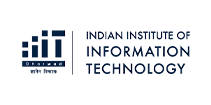B.Sc. Explained: Courses, Specializations & Career Prospects
Science develops our everyday life opportunities through technological developments and enables solutions for present issues. The B.Sc curriculum prepares students to create meaningful differences through discoveries, innovation and problem-solving. Through a B.Sc. program, you can acquire necessary skills to make transformative effects by studying space exploration or resolving complex mathematical problems or transforming healthcare systems. The rapid development of science and technology requires skilled analytical specialists possessing scientific backgrounds to become more relevant for modern industries than ever. Having earned a B.Sc. degree, graduates become essential to future development by creating advancements in healthcare along with leading AI technology development.B.Sc. degree students in the past accessed education through campus-based programs where they conducted laboratory work while building relationships with professors within organized learning platforms. But, have you ever thought about how digital education is transforming the way we learn? Digital education has transformed B.Sc. degrees into available online programs so that students can access quality education across the world from their preferred locations. The adaptable courses allow students with academic and professional responsibilities to study quality content from any location. You have found your ultimate guide to start B.Sc. major decision in this blog. The guide will review B.Sc. education through structures and specializations and learning formats and career possibilities while giving professional advice to maximize your learning success.
B.Sc. Course Structure, Duration & Essential Insights: An Overview

B.Sc. runs as a three-year degree program which establishes core scientific knowledge about research methods as well as practical applications. Every core subject and elective and practical laboratory instruction is part of the curriculum which explores physics chemistry biology computer science mathematics and physics as independent disciplines.
Eligibility Criteria
A student must graduate from their 12th year of education with a background in science including Physics and Chemistry and Mathematics or Biology in order to join B.Sc. programs. Some educational institutions choose to evaluate candidates through entry exams although many others determine admission through the assessment of educational merit.Key Skills Acquired
A B.Sc. major includes key ability areas that students learn during their studies:- Analytical and problem-solving skills
- Research and laboratory expertise
- Data interpretation and statistical analysis
- Technical proficiency in specialized areas
- Communication and teamwork abilities
Basic Salary Expectations
Fresh graduates who receive their B.Sc. degree earn starting salaries between ₹3,00,000-6,00,000 per annum, but their compensation varies according to their area of specialization and employment sector. Data Science and Biotechnology together with IT provide graduates with superior compensation opportunities when compared to the typical fields of science.Regulatory Framework & Accreditation
The B.Sc. educational programs in India face administration through University Grants Commission (UGC) while numerous institutions such as traditional universities and open universities and distance education providers deliver these programs. Through accreditation processes the program achieves fulfillment of academic standards while gaining recognition from both research institutions and employing organizations.B.Sc. Learning Modes: A Comparison
| Learning Mode | Flexibility | Cost | Practical Exposure | Suitability |
|---|---|---|---|---|
| Traditional On-campus B.Sc. | Fixed Schedule, Classroom-based learning | High (Tuition, Accommodation, Computing) | High (Lab, Field Studies) | Structured learners searching for direct interaction with faculty members should consider this pathway |
| Blended Learning B.Sc. | Partially flexible (mix of online & offline) | Moderate | Moderate (some lab work included) | The program appeals to students who need a combination of internet-based education with hands-on application. |
| Fully Online B.Sc. | Highly flexible (self-paced, remote learning) | Low to Moderate | Limited (virtual labs, online assignments) | Working professionals along with students will find this option best as it delivers affordability with accessibility. |
| Distance Learning B.Sc. | Self-paced, minimal faculty interaction | Low | Very Limited | The program works best for students who study better on their own with little practical work required. |
The Evolution of Online B.Sc. Program
Online B.Sc. programs transformed higher education by providing available programs at reduced prices together with adjustable schedules to students. The learning programs combine digital systems with AI-powered educational modules and remote laboratories for students to access an interactive digital educational experience. The self-paced format along with remote accessibility makes online B.Sc. courses most useful for working students and along with self-learners. Educational institutions maintain accreditation systems to offer certified programs for academic excellence that joins academic learning with workplace application processes. Students achieve industry-relevant knowledge through online education by using both scholarly forums for networking and real-time performance assessments and curriculum designed for professional standards. The transformation of education through technology makes online B.Sc. programs stand as credible and attractive substitutes against traditional educational methods.Why choose an Online B.Sc. Program?

Students Should Select Online B.Sc. Programs because of the following reasons:
1. Flexible Learning Schedule
Students receive flexibility to learn at their preferred pace since the absence of rigid class availability allows them easier control of study schedules with work and personal commitments.
2. Cost-Effective Education
The cost of study becomes lower when students choose online B.Sc. programs since these programs have reduced tuition expenses and eliminate commuting expenses and residential costs.
3. Industry-Relevant Curriculum
Modern B.Sc. programs receive industrial guidance from experts to provide necessary career skills for today's workplace.
4. Access to Digital Learning Resources
Students can boost their learning through the integration of e-books and recording of lectures in addition to virtual experiments and discussion forum participation.
5. Ideal for Working Professionals
Online programs let working people develop their capabilities through educational programs without stopping their employment commitments thus empowering them to advance their careers.
B.Sc. Specialisations
| Specialisation | Key Skills Earned |
|---|---|
| Physics | Analytical thinking, problem-solving, mathematical modeling |
| Chemistry | Laboratory skills, chemical analysis, research proficiency |
| Biology | Research aptitude, data analysis, laboratory techniques |
| Mathematics | Logical reasoning, statistical analysis, computational modeling |
| Computer Science | Coding, algorithm design, problem-solving |
| Environmental Science | Field research, environmental impact assessment, data interpretation |
| Nursing and Healthcare | Patient care, communication, clinical decision-making |
| Data Science and Analytics | Data visualization, machine learning, statistical modeling |
| Agricultural Science | Sustainable farming techniques, crop management, research analysis |
| Forensic Science | Evidence analysis, forensic testing, attention to detail |
B.Sc. degree provides students a broad range of potential career opportunities in research together with healthcare, education and technological work as well as environmental science and data analytics businesses. Students who complete B.Sc. can choose from many specialties since the program provides multiple directions based on their career interests and prior skills. After finishing their education students may either start working right away or choose M.Sc., MBA or professional education to boost their academic achievements and professional capabilities.

Multiple lucrative career options exist for individuals who have completed B.Sc. studies, such as:
- The role of a researcher involves performing laboratory work across physics, chemistry, biology as well as environmental science to build new knowledge bases for developing progressive solutions.
- The job of a laboratory technician involves assisting scientists both in research facilities and medical centers and testing units by helping with laboratory experiments while maintaining equipment and analyzing test samples.
- A Data Analyst employs statistical applications together with programming languages to analyze data and extract valuable business insights for IT software development alongside financial institutions and healthcare organizations.
- The Environmental Consultant evaluates industrial environmental effects then implements sustainable solutions to meet regulatory needs in both industries and government sectors.
- An IT Specialist develops software solutions and manages databases and implements cybersecurity standards through skills acquired from B.Sc. in Computer Science or IT programs.
- A Biotechnologist serves pharmaceuticals and healthcare and agricultural sectors by implementing innovative approaches to develop new drugs and conduct genetic research and fuel production.
- Healthcare Administrator takes responsibility for the operation management of hospitals with medical research centers as well as healthcare services to deliver effective patient treatment while optimizing organizational success.
- The Agricultural Scientist conducts research on crop production combined with analysis of soil health for the purpose of improving agricultural productivity and food security.
- The forensic expert analyzes evidence at crime scenes along with performing forensic tests so they can support law enforcement agencies to solve criminal cases.
- A Pharmaceutical Researcher conducts drug development tasks together with clinical trials and quality control procedures to help advance medicine and healthcare.
The Significance of Choosing the Right Specialization
B.Sc. Specialization selection requires serious attention because it creates major effects on students' educational and career paths as well as their professional skill growth. One must select their specialization based on personal interests together with skills and industry market needs because industries transform through technological advancements which alter job opportunities.Factors to consider while choosing specialization in the B.Sc.

Aligning with Interests and Strengths
A student's choice of subject influences academic achievement levels and professional job contentment. Understanding personal strengths and interests assists students in selecting their specialization because it leads them to both satisfying work that also provides rewards.Ways to Discover Your Interests:
- The process of career planning requires students to take aptitude evaluations for both aptitude measurement and professional interest discovery.
- Deeply evaluate school disciplines which ignite your natural interest and enthusiasm.
- Obtain guidance by consulting with university professors and mentors in combination with industry experts.
- Research available online classes or apprenticeships along with workshops in order to experience practical work before deciding on a career path.
Marketplace demand and industry expansion patterns
Some career options provide stronger career opportunities because of fast technological advancement and global transformation trends. High-demand scientific fields like Artificial Intelligence together with Biotechnology and Renewable Energy and Data Science open multiple job positions for qualified experts.Specializations Currently trending in the market:
Data Science & AI – High demand for professionals skilled in data analysis, machine learning, and automation.
Biotechnology & Biomedical Science – Growth in medical research, pharmaceuticals, and genetic engineering.
Environmental Science & Renewable Energy – Rising focus on climate change, sustainability, and clean energy solutions.
Computer Science & Cybersecurity – Increasing need for IT professionals due to digital transformation and cyber threats.
How to Maintain knowledge about marketplace developments
- Track down-to-date industry information through news distributions and research reports as well as market forecasts to uncover future job prospects.
- Check government job portals and private-sector hiring trends.
- Athlete networking should happen with both professionals and alumni who focus on your field of interest.
- Innovative students should pursue internship or freelance careers within sectors that display rapid market expansion.
Long-term Career Goals and Growth Potential
The specialization area must correspond to future professional goals which could include immediate job entry or M.Sc., MBA and Ph.D. degrees or shifting between distinct academic fields. Your future research track may need more education since certain specializations focus on research but other areas have instant practical use in industries.Considerations for Career Planning:
- The degrees of Physics, Chemistry and Biotechnology serve as effective routes toward academic research work and research fellowships in addition to academic studies.
- Corporate employment seekers should consider studying Computer Science or Data Science or Business Analytics since these fields lead directly to business sector opportunities.
- Students who want to become entrepreneurs should explore Agricultural Science together with Biotechnology and Environmental Science which offer business start-up opportunities in sustainable farming and biotech solutions as well as green energy sectors.
- Civil service candidates who want government employment opportunities should consider pursuing degrees in Environmental Science together with Forensic Science and Life Sciences because these subjects closely match government mandates.
Interdisciplinary Opportunities
Specialization programs provide versatility because they join different knowledge fields to let graduates try multiple career paths. Students who earn their B.Sc. in Mathematics qualify to serve in different professional roles including financial work, actuarial science, data analysis and academic teaching. A B.Sc. in Biotechnology provides pathways to work in healthcare sectors and pharmaceutical fields as well as agricultural research facilities.Examples of Interdisciplinary Specializations:
- Mathematics and Data Science: Allows professionals to implement statistical and computational approaches for artificial intelligence systems while handling both financial challenges and risk evaluation.
- Environmental Science and Public Policy: Careers in sustainability consulting, regulatory agencies, and non-governmental organizations.
- Biotechnology and Business Management: Opportunities in pharmaceutical marketing, product development, and biotech entrepreneurship.
- Physics and Computer Science: Enables professionals to work in developing robotic systems and quantum computing machinery as well as aerospace technologies.
Advantages of an Interdisciplinary Approach:
- Students access expanded employment opportunities because their skills connect several industrial domains.
- Organizations better adjust their operations when market needs change.
- When several industries merge their expertise it enables new methods of innovation.
- Such interdisciplinary education allows individuals to obtain employment advantages across technical and managerial positions.
Effective Strategies to Excel in a B.Sc. Program
Success in a B.Sc. course requires a balance between theoretical principles, practical application, and continuing learning. Science and technology constantly evolve, and therefore, the students must be updated and proactive in their learning.
Valuable Study Techniques for B.Sc. Students:
- Stay Current with Scientific Literature – Stay updated with industry trends, read scientific publications, and remain current with advancements in your area of study.
- Do Practical Work & Internships – Lab experiments, internships, and research work offer practical learning about real-life applications.
- Gain Analytical & Critical Thinking Skills – Science is problem-solving and critical thinking, and developing these skills enhances employability.
- Network with Professionals and Peers – Utilize workshops, join clubs, participate in science fairs, and engage with professors and professionals in order to learn and be presented with opportunities.
- Seek Out Additional Qualifications – Pursue online courses in fields like AI, data science, and environmental sustainability that can enhance your resume and skill set.
- Balance Personal & Academic Life – Spend time judiciously between studies, extracurricular, and personal growth so that one does not burn out and is well-balanced.
Conclusion
A B.Sc. degree is a powerful launching pad for a science, technology, health, and research career. And with online degrees, it is more within your reach than ever. Now, choosing the right specialization is a big decision. It can be the difference in shaping your career. Future fields like AI, Biotechnology, and Environmental Science promise much, with good career prospects and salaries.But the fact is, a degree is just the starting point. To really succeed, you need to stay curious, continually update your skills, and build contacts in your field. That entails staying in touch with current trends, acquiring hands-on experience, and interfacing with individuals with your passions. With the world growing more science and tech-savvy by the second, the need for skilled professionals is growing every minute. No matter what traditional, hybrid, or online B.Sc. programme you choose to study, never forget that the secret to your success lies in embracing a lifetime love for learning, adaptability, and discovery.
Frequently Asked Questions (FAQs)
1. Is online B.Sc. degree valid in India?Yes, online B.Sc. degrees from UGC-approved universities are valid in India and accepted by educational institutions and employers.
2. Which B.Sc. specialization has the most career opportunities?
Data Science, Biotechnology, and Environmental Science are fields that have strong demand and good career prospects.
3. Can I pursue B.Sc. while I am employed?
Yes, distance learning and online B.Sc. degrees provide flexible study timetables that can be accommodated around working professionals.
4. Are online B.Sc. degrees affordable?
Yes, they are usually more cost-effective compared to campus-based courses.
5. What are the career options after B.Sc.?
The career options after B.Sc. include healthcare, IT, and environmental science, to education, and postgraduate studies in M.Sc. and MBA.
Trending Posts
-
Explore Flexible Learning with Andhra University’s Online Programs
-
Mastering Online Exams in India: A Comprehensive Guide to Procedures, Benefits, and Preparation
-
NMIMS Online University: Why it is the Right Choice for You?
-
Decoding CGPA: How to Convert It into Percentage Easily
-
Top 7 Online PG Courses in India
-
From Certification to Degrees: All About Symbiosis School for Online and Digital Learning
-
The 10 Toughest Exams in India: Only the Best Make It Through
-
Top Online MBA Universities in India 2025
-
7 Major Changes Introduced by UGC You Need to Know About
-
How Much Do BCA Graduates Earn? Salary & Career Path Explained
-
Manipal University Jaipur Online: Courses, Admission, and Fees 2025
-
Top 10 Online MBA Specializations in Demand in 2025 and How to Choose?
-
Thinking About an MA? Here's Everything You Need to Know Before Enrolling
-
What’s Next After BCA? Top 10 Courses for Career Success in 2025
-
Jamia Millia Islamia Online & Distance Courses 2025 – A Student’s Guide































































